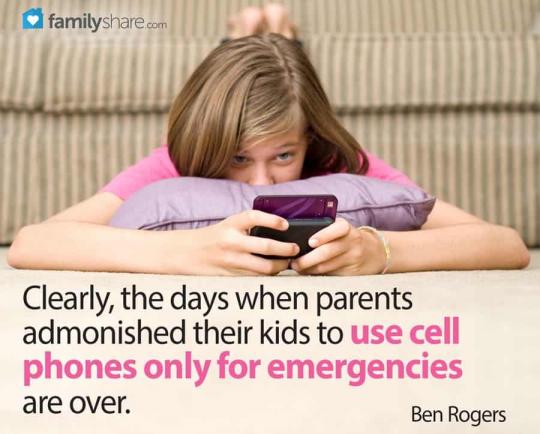
When the time comes to update your child's cell phone plan, you may consider changing from a regular cell phone to a smart phone. Technology is advancing rapidly, and smartphones are becoming the norm. The question becomes whether or not it is a good idea for parents to allow their teens to have a smartphone. There are benefits and downsides to making the change. The reality is, though, smartphones are becoming the standard devices used in wireless services and regular handheld devices have already become obsolete in today's technological driven society. Here is some practical advice and information on how parents can decide whether a smartphone is best for their teen.
Advantages
For teens and parents, there are definite benefits to having a smartphone. Cellphones are no longer used primarily for placing and receiving calls, text messages, and/or picture messages. They are also used to organize all aspects of their lives.
For example, smartphones can:
-
Organize and manage events through calendars
-
Send and receive emails
-
Take photos or record videos and then upload them to social media
-
Download applications that can be used for a variety of reasons (playing games, tracking calories, listening to music, etc.)
Those are just a small portion of the capabilities available on smartphones. For parents who have teens, these benefits will help:
-
Organize a teen's schedule (extracurricular activities, family responsibilities, events, homework, etc.)
-
Create better open communication, on-the-go between parents and their teens
Again, this is a small portion of what is available and how parents and teens can use these devices responsibly.
Disadvantages
Like any other modern convenience, there are disadvantages in using smartphones because of the nature and advancement in technology. Smartphones are essentially mini-computers and may encourage:
-
Isolation from family and friends
-
Potential risk for technology addiction
-
Potential risk to access pornography
-
Ability to access and watch inappropriate movies through applications
-
Potential risk of cyber-bullying
The difficulty lies in the reality that smartphones are becoming standardized across all wireless carriers and will replace the regular, basic devices.
Therefore, parents must take the time to discuss with their teen certain expectations and rules for using a smartphone. This includes understanding that (1) having a wireless device is a privilege and not an entitlement, (2) there are activities on a smart phone are appropriate/inappropriate, and (3) misuse will result in punishment.
Parents should integrate using a smartphone first (if they have not already), in order to understand the functionality and capabilities of these devices. Parents who are already using smartphones should help their teens learn their capabilities and instruct them on how to effectively use these devices.
Once the rules are discussed and agreed upon, parents should allow the teen to choose (within reason) a device that would fit their needs and not their wants. Some items to consider:
-
Functionality of the phone
-
Amount of data within a given package and cost of that package
-
Available apps for the specific platform of the phone (i.e., apps for Android phones vs. apps for a Windows-based phone).
-
Ease of navigation between screens and applications
Parents should help their teen set up the device by:
-
Approving application and downloads
-
Setting up and synchronizing calendars
-
Choosing appropriate email settings
-
Discussing responsible social media usage on smartphones
Parents may not avoid integrating their teen with a smartphone, however, they can avoid potential risks that come with using these devices by discussing responsible use.

